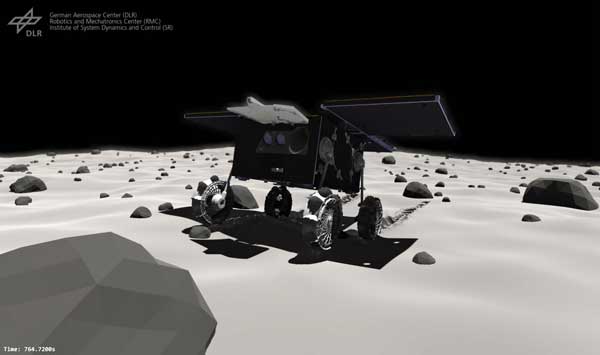
PARIS (CNES PR) — The week of June 27, 2022, on the occasion of the celebration of the 60th anniversary of the French space agency at the French Embassy in Japan, the President and CEO of CNES, Philippe Baptiste, met with Takayuki Kobayashi, Minister of Economic Security, in charge of Japan’s space policy, and Hiroshi Yamakawa, President of JAXA. This visit contributed to confirming Japan as one of CNES’s leading international partners, allowing discussions on current projects and cooperation prospects.
Franco-Japanese space cooperation is structured around three major themes: exploration, Earth observation and launchers.
In terms of exploration, three major missions are currently underway. MMX (Martian Moons Exploration) will take off in 2024 to study the two moons of Mars, Phobos and Deimos. The mission includes returning samples from Phobos to Earth and dropping a Franco-German rover on its surface. The latter will be delivered to JAXA in mid-2023. At the beginning of the year, the success of the Hayabusa-2 mission led the Japanese government to extend it until 2031. The Franco-Japanese curation work has been successfully carried out and the he French Micromega instrument, necessary for these activities, is loaned to the Japanese teams for two additional years. Finally, CNES contributes to the definition of the Japanese LiteBIRD mission whose objective, of major interest for CNES, is the study of the polarization of fossil radiation.
Regarding Earth observation, the AOS/ACCP (Aerosol, Cloud, Convection and Precipitation) atmospheric observation program is a top priority project for the French scientific community. This future space observatory notably provides for a formation flight of a NASA satellite and a JAXA satellite on which CNES microwave radiometers would be embarked for the study of clouds and precipitation. CNES continues its involvement in the preparation of this structuring tripartite mission for the understanding of the Earth system.
With regard to preparing for the future of the launcher industry in Europe and Japan, the two nations are continuing to work together on the development of the reusable Callisto demonstrator.
Finally, issues relating to the long-term viability and governance of space were also at the heart of the various exchanges. Japan’s growing interest in these subjects finds a particular echo in France, which has undertaken the update of its space legislation and regulations, and supports the European Commission’s initiative to set up an STM regime. on a European scale.

